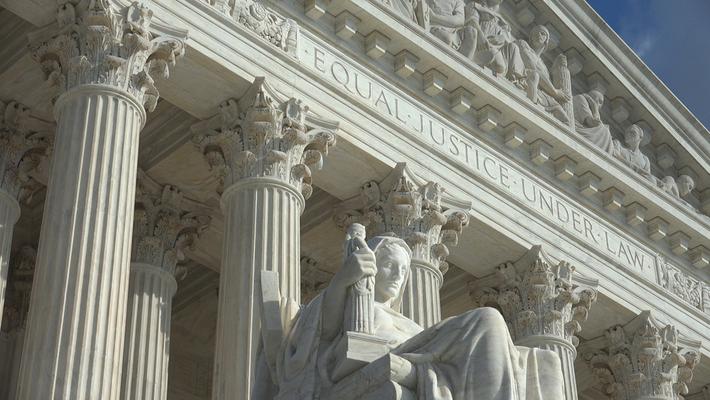One of the biggest misunderstandings about the federal government is that they don't follow the Constitution. As strange as it sounds, that's not exactly true.
The federal government follows the Constitution -- they just follow the wrong one. They follow the Constitution as interpreted by the Supreme Court, which has for years twisted the Founders' original intent to grant Washington more power.
But how, exactly, have they done that? What portions of the Constitution have they misinterpreted?
As constitutional scholar and Convention of States Senior Advisor Prof. Rob Natelson explained in a recent article, one of the SCOTUS's most insidious interpretations deals with the "due process" clause in the Bill of Rights.
In 1791 we added the Bill of Rights to the Constitution, and in 1868 the 14thamendment. The Bill of Rights provides that the federal government may not deprive any person “of life, liberty, or property, without due process of law.” The 14th amendment extended that rule to the states.
This “due process” language derived from a centuries-old English tradition. It meant that when the government proceeds against a person, the government must follow pre-set rules, whatever those rules may be. The government may not prejudice the person by making up new rules as it goes along.
That’s all the Due Process Clauses meant. Our Founders recognized other important rights, but in the Constitution they listed them separately. Unlisted freedoms were left to state bills of rights and the political process. Abortion was unlisted.
As time went on, the Supreme Court began to assume more power. One way it did so was to pretend that the Due Process Clauses granted the court authority over laws affecting individual actions. Since almost all laws affect individual actions, this was a claim of enormous scope.
Eventually the court labeled individual actions “liberty interests.” These included not only such constitutionally-recognized rights as free speech, but all other personal decisions: sexual behavior, family decisions, employment contracts, and many others. If a law regulated a decision, the court assumed power either to uphold it or to void it in the name of “due process.” This judicial activity became known by the oxymoronic name, “substantive due process.”
On paper, the court developed legal formulae for judging whether a law met “due process.” In reality, the court’s decision usually has been political: It ignores previously-stated formulae whenever it wants to.
The court has never applied scientific or truly objective criteria to its substantive due process jurisprudence. Instead, the justices rank liberty interests by how much they like them (“fundamental”, “not fundamental”) and government policies by how much they like them (“compelling” “important,” “rational” or “irrational”). How much the court favors each varies with who is on the court.
The "rule of law" doesn't have much power when the highest judges in the land can decide unilaterally what the law means. That's called an oligarchy, and it's time we put a stop to it.
Fortunately, the Founders also included in the Constitution a tool to do exactly that. An Article V Convention of States is called and controlled by the states and has the power to propose constitutional amendments.
These amendments can reverse judicial fiat by rewriting clauses like "due process" in such a way that the Founders' original intent becomes clear and unavoidable. The Constitution does not grant unlimited authority to the federal government, and we must compose portions of our founding document with activist judges in mind.
The best part? The entire process is controlled by the states, which means SCOTUS justices can't do anything about it.
Sign the Convention of States Petition below to show your support!


